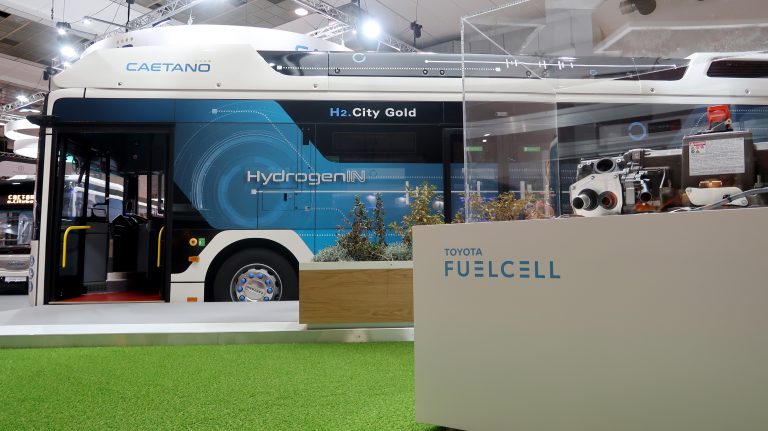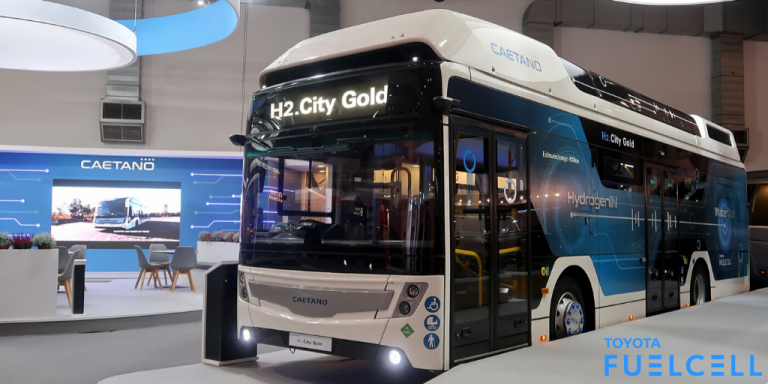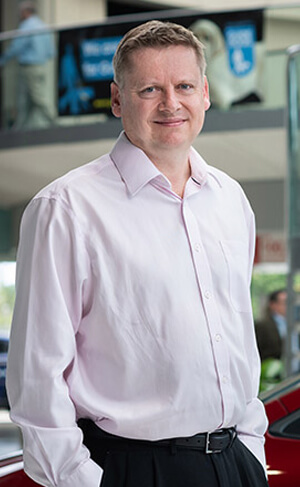Toyota and Caetanobus Prepare Hydrogen Fuel Cell Buses for Europe
Toyota is ready to bring zero emission bus travel to Europe’s cities in 2020. It has started preparations for the local manufacture of hydrogen-fuelled buses, delivering and integrating its first fuel cell stack for a new city model, the H2.City Gold.
Announced today at the Busworld 2019 exhibition in Brussels, this is the first concrete step in the collaboration between Toyota Motor Europe (TME) and CaetanoBus SA, established in September 2018 to build new hydrogen fuel cell city buses. CaetanoBus will produce the vehicles at its plant in Portugal.
“Thanks to their long-standing relationship with Toyota, their understanding of market requirements and their technical capabilities, CaetanoBus were the ideal partner to start the development of our powertrain sales activities in Europe,” said Dr Johan van Zyl, TME President and CEO. “I look forward to receiving the first market feedback from this initiative and the expansion of our supply business for hydrogen fuel cell technology.”
The teams at TME and CaetanoBus have been working since 2018 on developing a new hydrogen fuel cell bus, another step towards realising a future hydrogen society. Their success demonstrates the adaptability of the fuel cell technology Toyota first produced for its Mirai passenger car.
The fuel cell stack is located on the bus’s roof and is coupled to five hydrogen tanks with a combined capacity of 3.75kg, giving the vehicle a range of up to 400km1 (about 250 miles). It can be refuelled with hydrogen pressurised at 350bar in less than nine minutes2, and the only emissions it produces when running are water vapour.
This provides city bus operators with a zero emission vehicle option which isn’t compromised by charging time or high load conditions. A trial bus will be tested in various European cities during the coming months, prior to being commercialised in mid-2020.
“We have a long-standing relationship with Toyota, and successfully expanding our partnership to fuel cells for our new city bus in Europe allows us both to demonstrate complementary technology and world-class engineering capability,” said José Ramos, President of Salvador Caetano Indústria. “This project will enable cities to rethink their future mobility and enhance quality of life.”
In line with its vision of a decarbonised society, as stated in its 2050 Environmental Challenge, Toyota is promoting the application of its hydrogen fuel cell technology beyond passenger cars, in vehicles such as heavy duty trucks, small delivery trucks, forklifts and buses.
1 Depending on driving cycle and air conditioning/heating requirements.
2 According to SAE J2601-2 & SAE J2799 (IR).
ENDS



